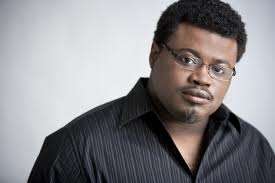|
Back
Passions and Rages New York
Rose Theater, Lincoln Center
11/04/2012 -
Johann Sebastian Bach: The Well-tempered Clavier, Book I: Prelude and Fugue in E-flat minor, BWV 853
Arnold Schoenberg: Six Little Piano Pieces, opus 19
Gustav Mahler: Das Lied von der Erde (Arranged for chamber orchestra by Arnold Schoenberg and Rainer Riehn)
Tamara Mumford (Mezzo Soprano), Russell Thomas (Tenor), Emanuel Ax (Piano)
Musicians of the New York Philharmonic and Guest: Robert Langevin (Flute), Alexandra Sopp (Guest) (Piccolo), Liang Wang (Oboe and English Horn), Pascual Martinez Forteza (Clarinet and Bass Clarinet), Judith LeClair (Bassoon), Philip Myers (Horn), Daniel Druckman, Klue Zerna (Percussion), Eric Huebner (Harmonium and Celeste), Sheryl Staples, Michelle Kim (Violins), Rebecca Young (Viola), Maria Kitsopoulos (Cello), David J. Grossman (Bass), Matthias Pintscher (Conductor)

E. Ax (© Maurice Jerry Beznos)
When asked what the “White Light Festival” actually means, I happily reply that it has no more “meaning” than music. Yesterday afternoon it meant a tripartite enigmatic linkage. Two works separated by 200 years, with a transformation that verged on the mutation.
All, though, were linked in history. The starting piece, Bach’s E-flat minor Prelude and Fugue from Book I of the Well-Tempered Clavier was the first attempt to bring mathematical certainty to the diatonic scale. The next work, Schoenberg’s Six Little Pieces was an initial attempt to fracture that same scale after two centuries of usefulness.
Gustav Mahler’s work not only was unclassifiable (a mutation of symphony and song cycle), but simultaneously tugged at massive feelings and emotions never dreamed of in Bach’s time. Schoenberg, of course, did understand that, though his slimming down was questionable.
Except for one contradiction. Bach, the “purest” Baroque composer did actually confront the our own unconscious in the E-flat minor Prelude and Fugue. Ingmar Bergman in Wild Strawberries used this fugue in an astounding (and very Freudian) dream sequence, when a girl is seduced while playing it. And the piece serves as structure for the other music–and the architecture of the fugal movie itself.
Whew!!
As always, Emanuel Ax had the right idea in playing the Bach with no exaggeration, letting the notes speak for themselves. And then immediately, with no wait for applause , to play the six bagatelles of Arnold Schoenberg.
Such is Mr. Ax’s understanding of music old and contemporary that even the most rabid anti-atonalist could feel the exquisite sonorities, the adventure of the Schoenberg. Like Pascal, who once said he wrote a long letter because he was too exhausted to make it shorter, Schoenberg wrote his Six Little Pieces to give that whiff of emotion before the complexities of the composition.

R. Thomas (© Courtesy of the Artist)
After Mr. Ax–but including him as part of an ensemble–we had Mahler’s Song of the Earth, conducted by that splendid composer-conductor Matthias Pintscher. Wonderful as these six songs can be, the orchestration by Schoenberg, finished by another composer, are simply not as fulfilling as the huge original “Mahlerian” orchestra with its trios of woodwinds, four horns, three trumpets and trombones and large percussion section. True, Mahler rarely used the full ensemble, but when he did, the colors was astounding.
Those colors were missing in this version, though I imagine the two singers could use their voices more imaginatively, not having to overpower the orchestra. But for us in the audience, this ensemble resembled a 1930’s shipboard orchestra: a string combo, a few winds, and two percussionists. To hear Philip Myers on French horn or Robert Langevin on flute is always a treat. But the sparseness of the orchestra made one feeling something was missing.
Then too, there was a huge difference between mezzo and tenor. Tamara Mumford has a lovely soft voice, and she skipped through the fourth song delightfully. One couldn’t fault her quality, even when Mr. Pintscher lagged in the final Abschied. But this was not Mahler singing. She could have been singing a Bach arioso or a Schubert melody. The depth, the passion, the power, the foreboding of Gustav Mahler was missing.
Perhaps this was because Mahler pushes both singers to their limits, and Ms Mumford sung this all too easily.
That could not be said for the tenor of astounding power, Russell Thomas. But it wasn’t the power which turned Mr. Thomas’s Mahler into something so extraordinary. He took the words to their limits, the phrases were clear and ringing, one felt that this was the Mahler which suffered as he wrote, the Mahler for whom the original Chinese verses signified so much more.
And perhaps this was the secret of the concert. That the Bach had an unconscious message, that the Schoenberg pieces showed the complexities of simple feelings, and that the Mahler poem/music possessed an extraordinary range of emotions.
Mr. Thomas and Mr. Ax understood this, and their playing was as enlightening as it was powerful.
Harry Rolnick
|